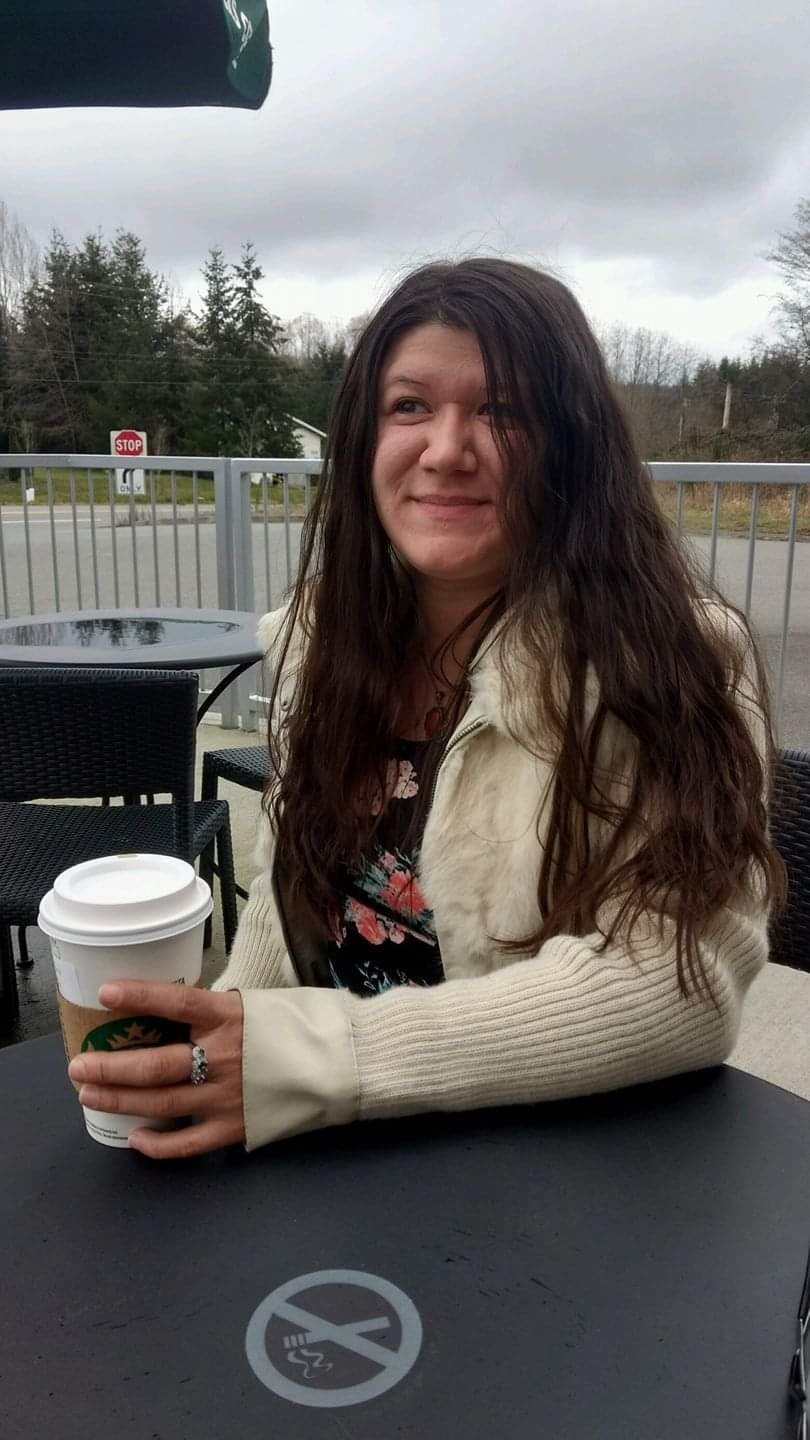
   @Georgiana
I was born to an exceptionally large family. I had been my parentâs eighth and last child amongst them. They divorced 3 years later, the same year as the Revolution. My mother went on to have 2 more children with a different man than my father.
I was a child of the revolution, what adoption campaigns eventually labeled as âNobodyâs Child,â remnants from President Ceausescuâs time. The hundreds of âunwantedâ children âabandonedâ at institutions. He wanted to create a larger army and enforced the conception of children onto struggling families. Many of these families indeed wanted their children but struggled to provide for them. The country was turned upside down from a lack of resources. Ceausescu owed many countries money and sold Romaniaâs goods in the place of the funds. Many of Romaniaâs people could not feed themselves, but it was not their fault. Many families took drastic measures in order to make sure their children received the care that they needed and placed their children into institutions.
After a child was put into an orphanage, it was often exceedingly difficult for a parent to get their child home. Parents were often denied access to see their children, lied to about the whereabouts of their child, or told their child had died. This left many options for the institutions that chose to profit off the pain of others. With the revolution of 1989, people profited.
Romania practiced adoptions pre-Christmas 1989, but all adoptions were single-handedly approved by Ceausescu himself. When he was murdered, there were no laws in place, and this allowed people from all over the world to come to Romania and take children out of the country. It is estimated that 10,000 children were taken from Romania and dispersed around the globe between the years 1989 and 1991. Many of these adoptions were scandalous. Parents and authorities alike were bribed and manipulated. This caused Romania, in the middle of 1991, to halt all international adoptions and set up laws in order to establish a more legalized system. It took a few months, but eventually reopened and resumed until 2007 when Romania halted international adoptions in order to follow the same laws as the European Union. Romania is actively trying to become a member of the EU currently.
I learned much about international adoptions in Romania from a civil servant named Roelie Post of the European Union. Her book is posted below
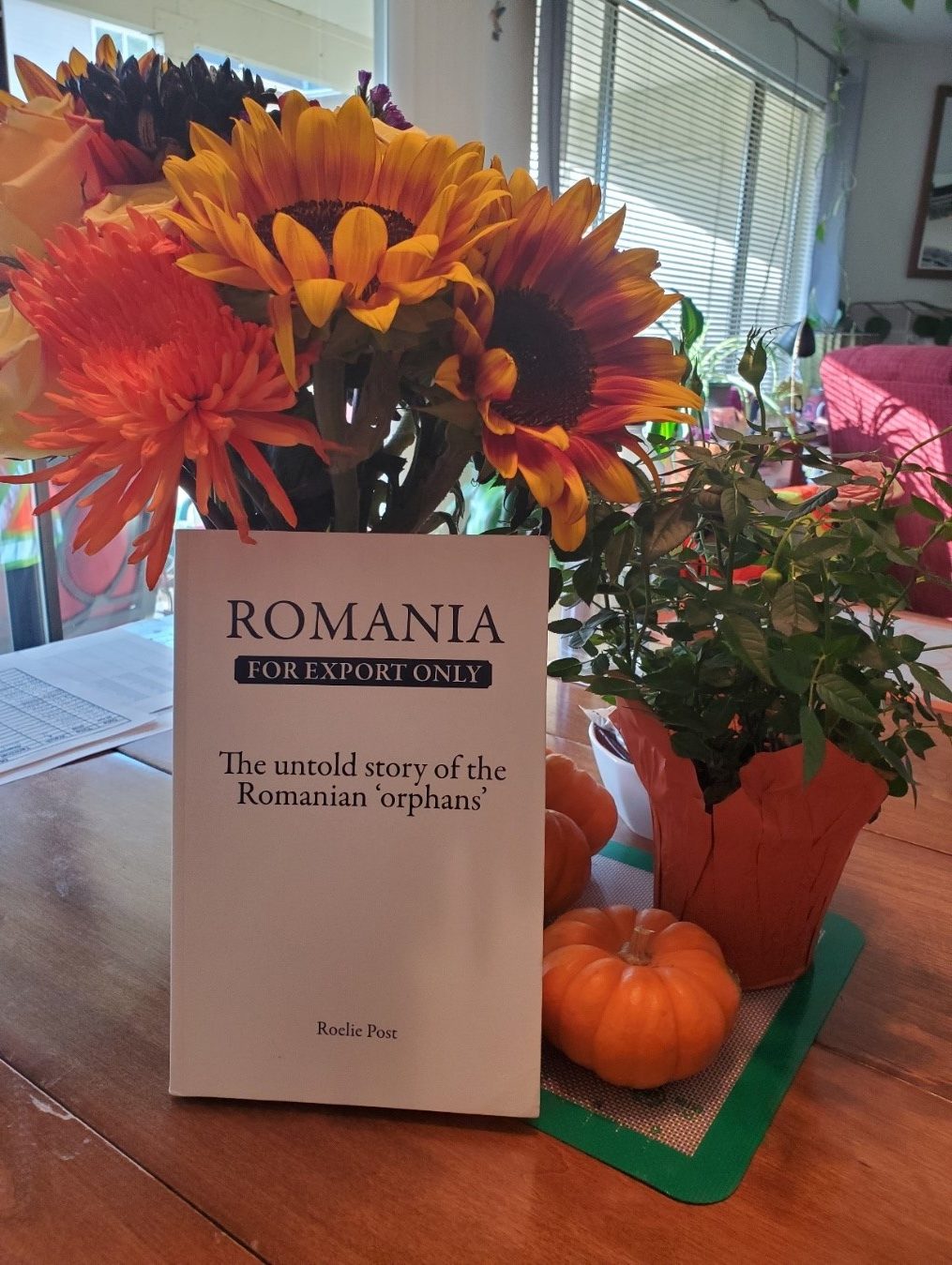
Romania for Export Only: The Untold Story of the Romanian âOrphansâ by Roelie Post-Â @Georgiana
I was adopted before Romania closed its doors mid-1991. I was not institutionalized, and neither were any of my siblings. My family struggled like many families of Romania during that time, and my parents were not exempt from the pressures of foreigners who approached my parents in order to take my siblings and I away. My mother went to court, but she lost her case against the ârich Americansâ that could provide my siblings and I a âbetter life.â What people call better is a matter of opinion since there are no guarantees in life, there is only a different life. I went to the United States 5 weeks after my parents were approached by the strangers. A total of 4 of my siblings had been adopted as well. We had been separated into 3 different families and 2 different countries.
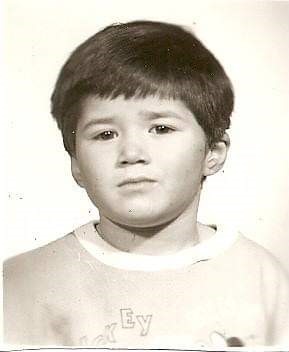
My passport photo from when I came to the US-@Georgiana
I adjusted but I did not fit in with the people who adopted me. I was tolerated and received all the material things I needed, but I was not filled with knowing I was loved by them. They had several children before my sister and I became a part of their family, and a few years later, my brother.
I was like a puppy on Christmas. Fun for a bit, but unwanted after aging. It became harder and harder to be with the people who adopted me. I was struggling emotionally but anybody who tried to reach me, such as counselors, friends, or schoolteachers never asked me about what truly mattered. They never asked me how it felt to have been adopted. All the questions stemmed around the family I was adopted into, and not the family from which I came. I thought about my family in Romania constantly and had no place to speak about them. I was suppressing my true self, and I was screaming desperately on the inside to let her out.
When I was around 10 years old, my father in Romania had passed away in a car accident. I learned of this tragedy from my next-door neighbor because he was the only one willing to be honest with me. After he told me, I thanked him and closed the door behind me. I sat on the floor for a long time, realizing that I would never be able to see my father again. It devastated me since he would write letters to me and learned English in order to make it easier to communicate.
Even though I had older siblings with me, we were not allowed to speak Romanian together. What I know as an  adult is purely from memory or is self-taught.
Around the same time that my father died, the people who adopted me decided to divorce. It was a battle between them, and their bickering was quite uncomfortable. I was tossed around between the 2 of them. It was easier at some point to live with her, and I stayed there.
In November 2001, a letter from my brother who was adopted after me, arrived in the mail. I saw it on the table, and it was unopened for what felt like days. I finally discovered the contents of that letter when the woman who adopted me awoke me to share it. It was a suicide note. I was devastated. We had search and rescue out looking for him, and all my siblings who had been adopted came to our house. It was the last time all of us were together. It was a total of 10 days since receiving the letter until he was found and buried.
I will never get over my brotherâs death. I still wonder why, and I still find myself not understanding. He was a beautiful soul and was loved by everyone. I knew of no enemies of his. He really was like an angel. His letter left me perplexed, and angry. I had been changed and there was no going back to the girl who I used to be. I was a pushover, others took advantage of me, I didnât know how to stand up for myself, and I lived by the rules of others. My brotherâs death awoke me to how compliant I had been. I decided then and there that I would no longer be doing that.
I started to lash out. I started acting out and not caring about anything. The person I loved more than anything in the world no longer existed, so why did it matter?
The woman who adopted me could not stand this new me, and one day brought me boxes for me to pack my belongings. She told me that she did not care where I lived, that I could be homeless for all she cared. I packed up my things and took a train to live with the man who adopted me. It was Fatherâs Day of 2002.
I lived with him until I turned 18. I was still in my last year of high school when he told me that he was moving. He told me that I had one month to find a place to live. I was desperate and through this desperation, I was forced to make some decisions that were not the best for me. I learned so much about myself and my resilience through all these mistakes. Including but not limited to marrying a man 20 years older than me, who was violent and addicted to drugs.
I was looking for someone to care about me and because I had never experienced the right kind of love, anybody would do. I knew I did not love him, and I felt trapped in the relationship. It was not until he was arrested on some extremely serious charges that I obtained enough courage to file for divorce.
I wanted to be on my feet again. I wanted to be successful. The marriage was not something I wanted. It was not something that I sought, but it happened.
I looked for a new place and found a job that I was good at. I was there for 3 years until I was unexpectantly fired. I did the right thing and stood by my morals, but my companyâs morals did not align with my own. Though I was devasted at that time, it was a blessing in disguise.
I had a complete meltdown and I had to understand why. Why was I let go? Didnât I do the right thing by reporting my coworkerâs inappropriate actions? Why did they not like me? Why did they abandon me? Why was I initially âabandoned?â This was the core question of my life, and I had not realized it until then. I was having feelings of displacement, of insecurity, and of self-doubt. All these emotions were deep under my skin, released and fueled entirely by my company freeing me. I went to the unemployment office, but not only that, I joined Facebook.
Within the short few months that I was on social media, my younger brothers from Romania contacted me. I had used my legal name, which is my Romanian name, when I had joined Facebook. I had changed it back when I had divorced my ex-husband. Obtaining my original name was a gigantic freeing moment for me. I felt much closer to my authentic self. I could not stop the path I was on, nor did I want to.
My brothers finding me had left me with many unanswered questions. This meant that they not only knew about me, but wanted to speak with me, and that they discussed me in their homes! What if I had never changed my name back? Would they not have been able to find me? I was in a shock. I sought out groups to discuss my feelings and emotions.
I found many groups and met several fabulous people within the confines of the internet. I interacted with people across the globe. Adoption had changed me, and I had not realized the extent. These groups were a huge deal to me when I realized they existed. I finally was meeting others with similar feelings, emotions, and backgrounds for the first time in my life. People I never met were so open and honest about their lives.
After reading story after story, I was given the courage to speak about my own. Once I stared talking, I realized that I could not stop. My guts were laid open for all to see, but what was really exposed was my bruised and battered heart. I spoke about my heartache and pain in order to work through my past. I was labeled angry and unstable by those who chose to not understand me when I questioned the morality of adoption practices. I was threatened for speaking my truth, but I cared not. They do not have to live my life and did not experience what I experienced and know to be true for me.
When I started speaking out about the injustices of adoption practices, I realized that my life was not about me. I never wanted what happened to me to happen to another. I could have been adopted by anyone or not at all. I was not theirs and that is why I do not use the words: my adoptive parents. There is no ownership on my end. They are simply people who adopted me, and they could have been anybody. They were desperate for a child, and any child that they could obtain would work for them.
Amongst some of the hostility, I did have encouragement from strangers on the internet about starting my own group. I wanted a safe place for people like me to express themselves and I created RAW: Romanian Adoptees Worldwide, but now I call it (In)Far: The International Network for Adopted Romanians. We started âinâ Romania and went âFarâ from it. Link here: https://www.facebook.com/groups/In.Far.Romania/
It is important that all narratives can be shared, not just the narratives considered good. I hope I offer this place. The group has been through a lot of changes and it is still changing. It is important for me that members feel safe. It is not a political group; it is a support group with 600 members strong. Some members have met up outside of the group. Others have used the group as a tool for learning about Romanian resources, language, and finding their families. It makes me happy that we are finding each other, and we are helping each other succeed! I could not be prouder of these strong individuals that have changed me.
I kept interacting in groups and kept working on my own creations. I am working on writing a memoir, and it is taking a while because of some of the topics I want to discuss. I want to make it worth reading and want to help others with it being written. Along with all of this, I had to cut my ties with the people who had adopted me. I found myself unable to keep up the charade of pretending that they cared about me or that I cared about them. I asked them my questions and moved on when I realized they were unwilling to help me sort out my past. I had to do that on my own.
When I was 27, I enrolled in college to successfully earn my associate degree. During that first year, a sister asked me to join her in visiting Romania. I said yes. I spent 2 weeks there and it was the best 2 weeks of my life. They were moments of happiness and heartbreak because I realized I could have easily grown up in the country of my origins. I was able to visit my home that was still in the family! Unfortunately, I cannot take back all those years of growing up without Romania. I must live my life, and some day, I will return to the country of my heart. Someday, I will be the Romanian I was meant to be.
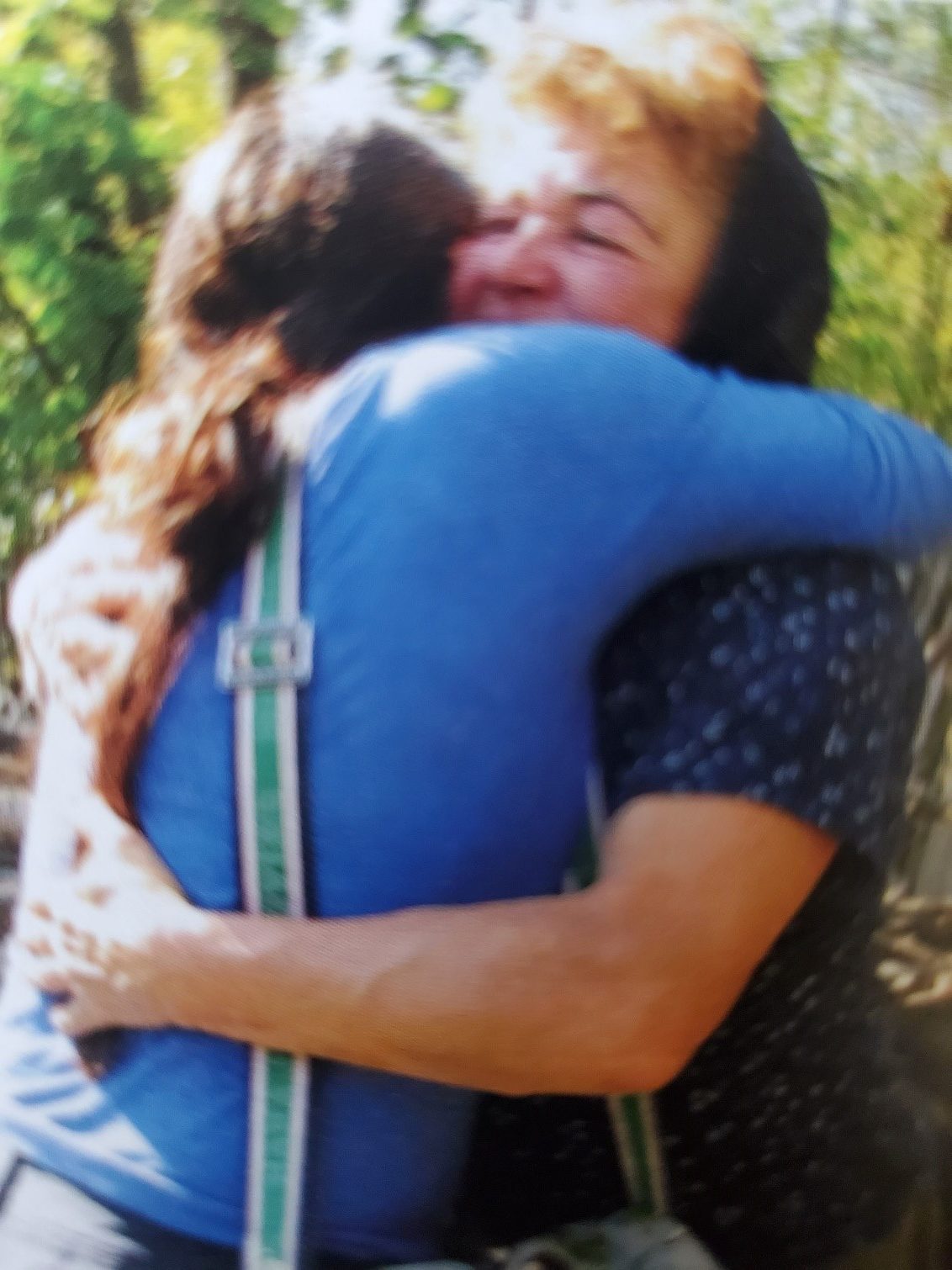
A picture of my mother and me at my first visit back to Romania-@Georgiana
I no longer worry so intensely about having been adopted. It used to consume my mind and torture me. The questions of âwhat ifâ are not so predominant. Through these small steps, I have been finding peace within myself, and I hope all others can find their peace as well.
There are a total of about 30,000 people who had been adopted from Romania between 1989 and 2007 when Romania halted international adoptions completely. I am but one. More can be read about me here: https://www.overcomingodds.today/standup-speakup/2017/2/28/georgiana-macavei
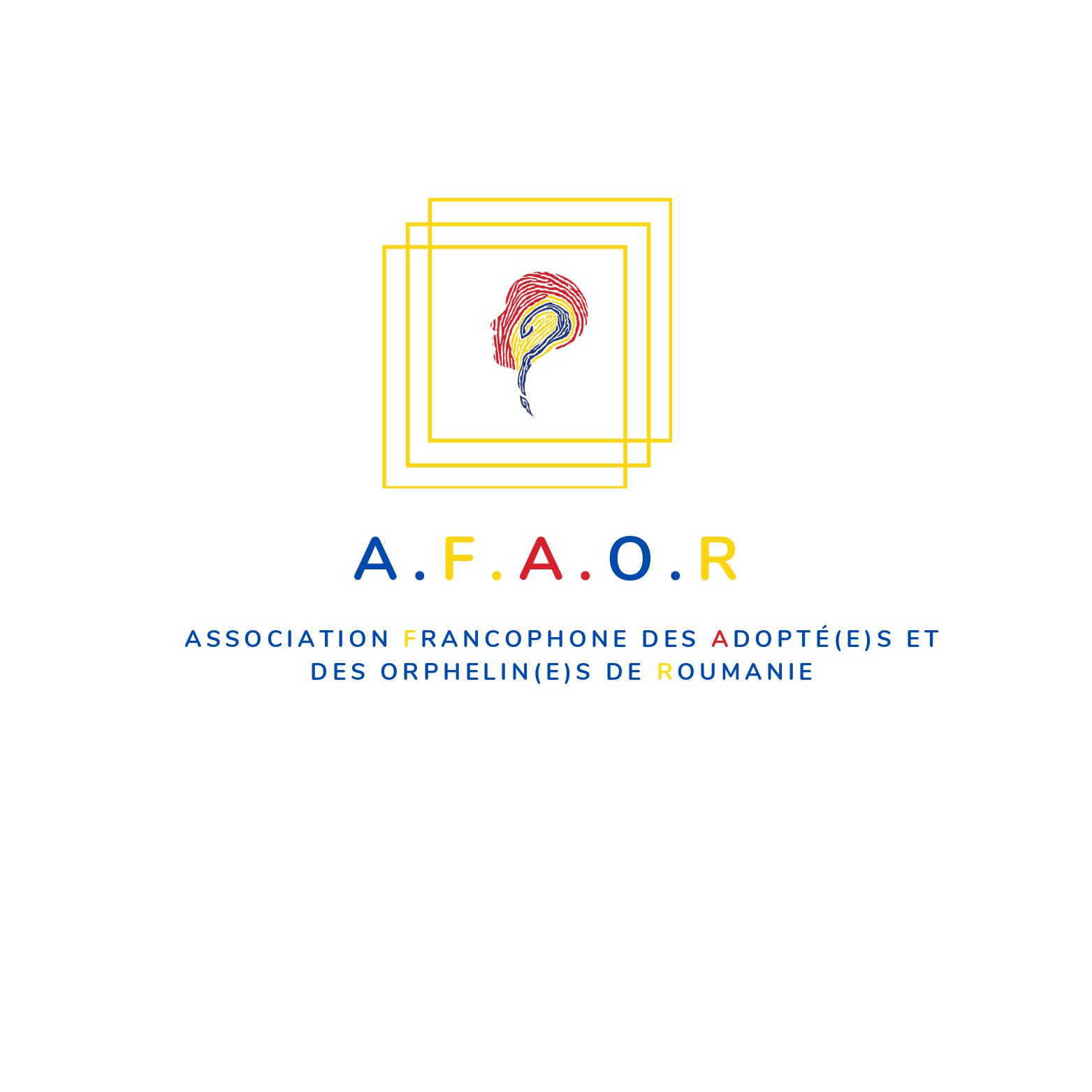





A moving story. Thanks for sharing.
Cu placere Rupert
Thank you for sharing your story. Your words are so important! Your honesty is courageous and beautiful. I am a Korean adoptee. There are estimated to be about 200,000 Korean adoptees around the globe. Transnational Korean adoption started during the Korean War and continues to the present. Many of the Korean adoptees are coming to terms with the circumstances of their lives now that they are adults. We also have found one another through social media. We are in the midst of finding our voices and changing false narratives. Your words resonate with me. I am so glad to have come across your article. Wishing you health, support, comfort, and love in the new year!
Good evening kimberly, the word of all adoptees of all origins deserve to be heard and listened to, it is very important. the subject of adoption and the search for origins is too commonplace in our societies. We hope you are going well. Thank you